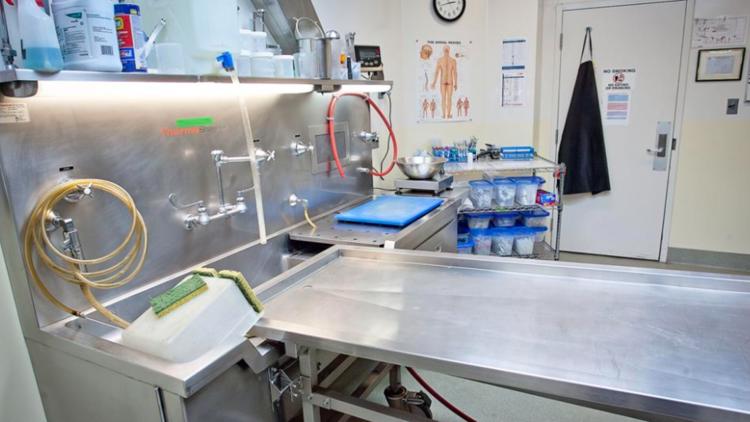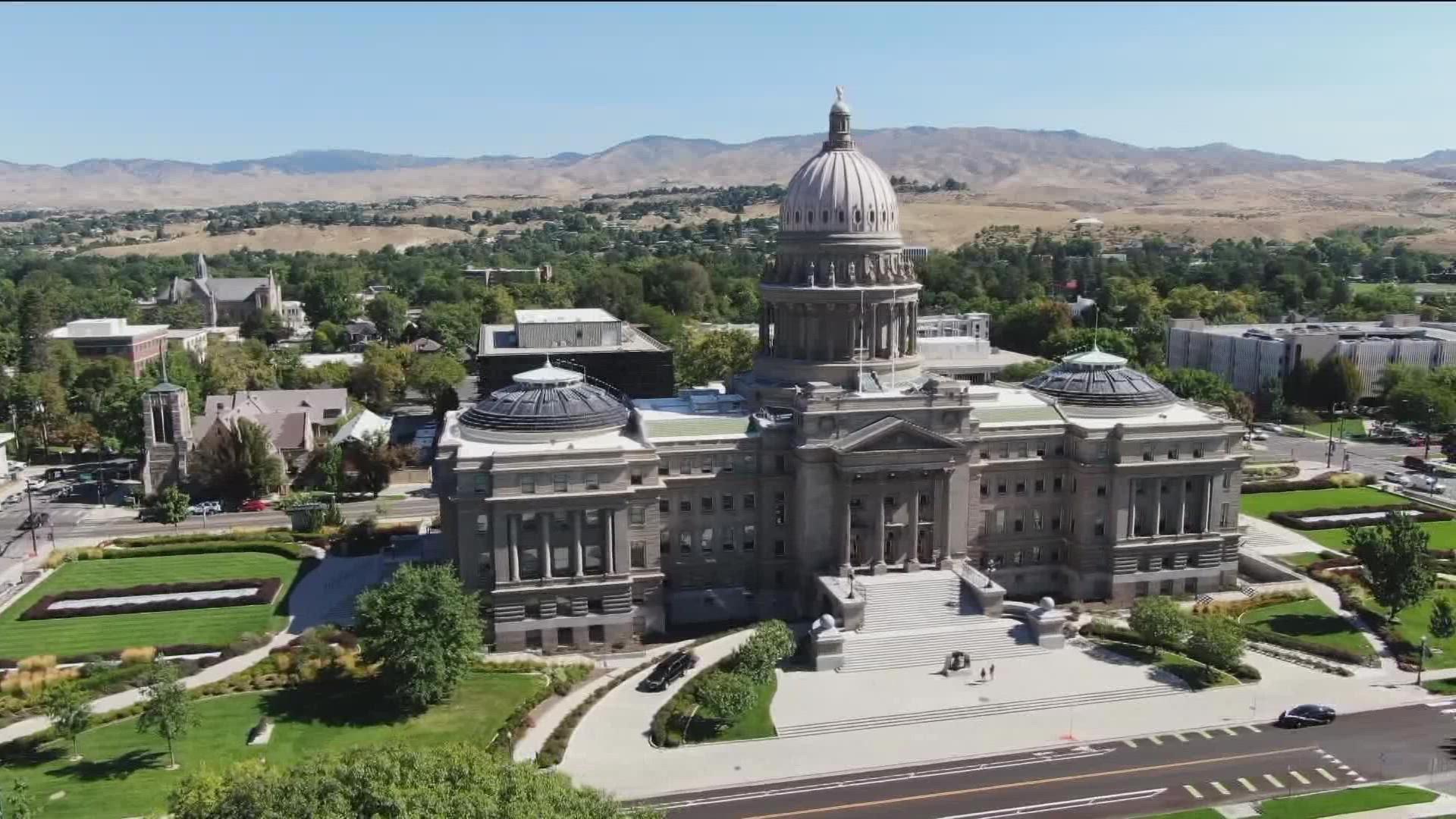BOISE, Idaho — This article originally appeared in the Idaho Press.
Idaho is ranked the lowest in the nation for the percentage of homicides autopsied — to address this shortfall and other challenges faced by the death investigation system, a group of Idaho county coroners prepared proposed changes to the state law.
Torey Danner, the Bannock County coroner and first vice president of the Idaho State Association of County Coroners, gave members of the Joint Legislative Oversight Committee (JLOC) an overview Friday of the group’s efforts to address issues found in a report including inconsistencies within Idaho’s elected coroner system.
The Office of Performance Evaluations (OPE) report, released in February, found that there’s little direction in Idaho code for corners and these can lead to a fractured death investigation system and a lack of oversight for educational standards. Among these findings were that just 49% of child deaths from external or unknown causes were autopsied in the state between 2018 and 2022 — the lowest rate in the nation and well below the national rate of 79% in that same time period.
“After we heard that report, I think all our jaws were hitting the table,” JLOC Co-Chair Sen. Melissa Wintrow, D-Boise, said Friday. “I don’t think I’ve ever been in a room where I heard so many legislators say, ‘now what? How do we help?’”
Wintrow said she and fellow JLOC Co-Chair Rep. Doug Pickett, R-Oakley, met with a group of coroners over the summer to gather their recommendations for addressing the issues found in the report.
Kelli Brassfield, policy advisor with the Idaho Association of Counties, presented the draft legislative changes at the Friday meeting.
The OPE report noted that Idaho code and rules currently provides just 10 circumstances in which deaths were required to be reported to coroners for investigation; the proposed legislation would add several more, including instances in which the death was sudden when the person was in apparent good health within 36 hours, when the death results from “unknown or obscure causes,” when a death apparently results from drowning, electrocution, gunshot wounds, starvation, radiation, alcoholism, narcotics, poisoning, tetanus, strangulation, suffocation or smother, occurs in jail or prison, or if it may constitute a threat to public health.
Committee member Sen. Dave Lent, R-Idaho Falls, questioned why radiation was included in the list of death circumstances.
Danner said it was likely because of Idaho National Laboratory, which Lent took issue with.
“That’s an overreaction to a hazard that does not exist to the point of listing it in here,” Lent said. “... having worked there many years and being involved with that, I’m a little sensitive to that, that it gets called out.”
The group also proposed a new section of code to outline the powers and duties of a county coroner, something that the current code lacks.
The voter-elected positions would be charged with determining the cause and manner of death for deaths within the office’s responsibility. It would also specify that the coroner has jurisdiction over the human remains.
The report also found that while it’s required for officials to complete coroners school after taking office and do 24 hours of continuing education every two years, this isn’t enforced or properly tracked so it’s unclear how much education is being completed.
The proposed new language would tie the education requirements to certification as coroner, and it would require that classes be approved by the American Board of Medicolegal Death Investigators. It would also allow the cost of the education requirements to be reimbursed funds generated from fees on death certificates.
The draft bill would also add several definitions of technical terms, such as human remains, manner of death, and medicolegal death investigation.
Rep. Steve Berch, D-Boise, asked Danner to come back with a dollar amount that the Legislature would need to appropriate to ensure that county coroner officers are adequately funded.
“What the Legislature needs is a top-line dollar number,” Berch said. “How much additional money is needed, to do this job, to get us to where we should be today as a minimum, and how much we need to be able continue to fund this activity to meet future needs? Otherwise, we’re always going to be a dollar short and a day late.”
This article originally appeared in the Idaho Press, read more on IdahoPress.com.



